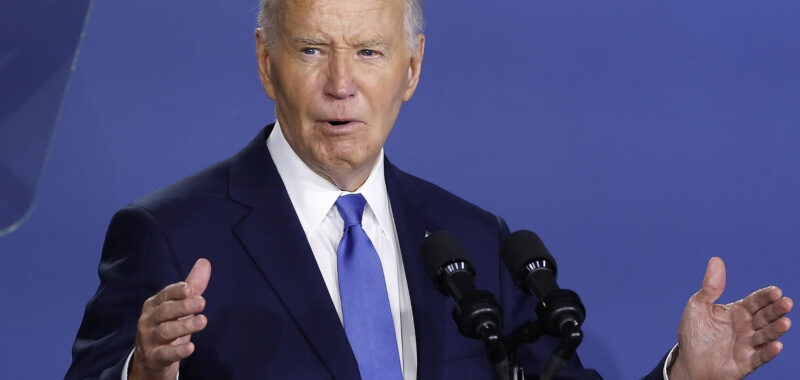The withdrawal of President Biden, 81, from the 2024 presidential race came after months of attacks on his cognitive abilities and amid accusations of decline from his 78-year-old opponent, former President Donald Trump. In a conversation that has been edited for clarity and length, Kirk Daffner, a professor at Harvard Medical School and a cognitive neurologist at Brigham and Women’s Hospital, shared his reaction to the intense national discussion around Biden’s age and candidacy.
Have we lost an opportunity to shatter stereotypes? Clearly, both Biden and Trump — whether you agree with their policies or not — have been performing at a fairly high level.
It’s extraordinary what both the candidates have been able to do in their mid- to upper 70s. It also highlights the fact that our view of who is considered old has changed. When I started to study age-related cognitive changes, the “old” people we investigated were in their mid-60s. Today, people in their 60s tend to be thought of as middle-aged. I’m told that Lincoln considered himself old when he took office, but he was only 52. What was considered old then is radically different from what we consider old now.
“The recent discussion has suggested that there’s a moment when a person moves from being young to being old, implying a sharp dividing line between normal cognitive aging and abnormal, diseased cognitive aging. That is not true.”
Has Biden’s withdrawal had an impact on people you see in the clinic? Is this a hard moment for older people who may be trying to continue in their careers?
This has not been a major theme for patients in the last few days. People talk about it in passing, but they are not bemoaning that it undermines their sense of purpose or faith in their abilities. That said, it is common in my practice to talk to patients about their professional lives or other activities and under what circumstances it makes sense for them to alter what they’re doing. Awareness of the issues facing President Biden can serve as an “invitation” to all of us to be more proactive, because I don’t think the best time to take up this question is in the middle of a personal crisis. The more we think about these challenges in advance, the more we will be able to plan for and handle them when the time comes. That said, most of us don’t address these really tough questions until they become obvious.
Is denial a major factor?
It varies from person to person. There are definitely people whose work isn’t the centerpiece of their lives and there are others whose work is a vocation, a calling. Work is profoundly tied up with who people think they are. For some, to give up work or to give up certain activities and responsibilities is to lose oneself. That is a scary and painful process.
Denial is something that we all are at risk of experiencing and exhibiting. However — and I’m not talking about any recent or current candidates for president — sometimes the brain processes that are associated with changes in cognition can undermine our ability to have insight into our losses. So, it may not be denial in the psychological sense, but it may be a reduced capacity to clearly see how we’ve changed and where we’re headed.
Are there lessons in the case of President Biden to inform wider conversations around ageism and old-age stereotypes in the U.S.?
This was an opportunity to have a much more nuanced discussion about age, but a lot of the recent discussion has painted these issues with a very broad brush. Old age has been portrayed as a time of frailty, cognitive decline, and dementia, images that have not served us well. If you look at people across the age spectrum, the variability in cognitive abilities increases with age. There are definitely people in their 80s who are as sharp as people in their 50s and perform their tasks and duties on par with them. The recent discussion has suggested that there’s a moment when a person moves from being young to being old, implying a sharp dividing line between normal cognitive aging and abnormal, diseased cognitive aging. That is not true. There’s a continuum between normal and abnormal cognitive aging. As we get older, there’s an increasing risk of developing a whole range of conditions that can impact the brain and cognitive functioning and very few of us reach the end of our lives without having had several of these processes affect us.
Is the idea of “making room for the next generation” a valid reason for someone who still desires to work to step aside?
I don’t think that that particular question is within the purview of the expertise of a cognitive neurologist, but my own sense — after having taken care of many people of different ages — is that there can be a lot of variability in any particular generation’s perspective on the world. It seems wise for our leaders to tap into transgenerational knowledge and wisdom — to surround themselves with people who are older, perhaps wiser, as well as people who are younger and have a different perspective — and not to rely solely on the perspective of one’s own generation.
Source link

